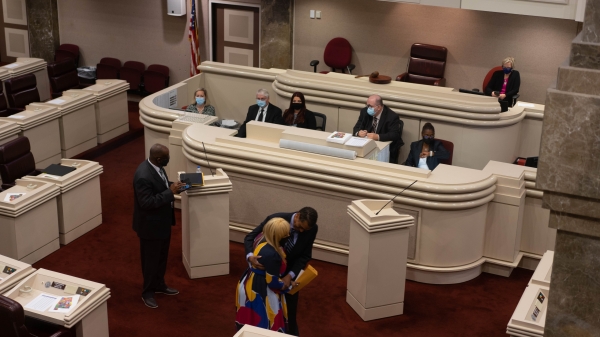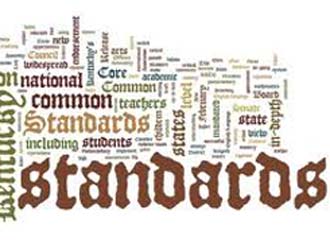By Lee Hedgepeth
Alabama Political Reporter
The fight over what has become known as the Common Core educational standards has made its way into both the Education Trust Fund budget and into two Senate bills, one of which is scheduled for a public hearing tomorrow at the State House in Montgomery.
The educational guidelines, also known as the College and Career Ready Standards, were adopted by the Alabama State Board of Education several years ago, and have been implements since. The standards, which cover only mathematics and English, have drawn fierce opposition by those on the far right, with Tea Party GOP favorites like Senator Scott Beason, R-Gardendale, labeling them as “untested” standards that amount to a”top-down, federal… experiment” on Alabama’s public school children.
Language included in the Education Trust Fund budget currently states the following:
“The funds appropriated above shall not be used to implement standards, programs, or student assessments created by the Common Core State Standards after April 1, 2013.”
Though the ETF originated in the Senate, Speaker of the House Mike Hubbard has said that he thinks the ETF budget language is a good compromise on the Core issue. Senator Del Marsh had vowed, until recently, that no Common Core legislation would hit the Senate floor.
State Superintendent Tommy Bice responded to the budget language in a statement:
“I do not support a budget attempting to set education policy in our state, as that role belongs to the State Board of Education upon recommendation from those who are experts in their respective disciplines.”
“There’s no indoctrination. There is no conspiracy,” Bice has said.
“We are teaching math. We are teaching kids to read and write. It just doesn’t make any sense for something that is simply a political issue. It has nothing to do with academics,”
Senator Scott Beason, who is now running for a US Congressional seat, has also introduced two bills that will bring the Common Core to the forefront.
SB380 would completely delay and reverse any implementation of Common Core-related standards until at least January 2017, and would require localities to revert to curricula in place before the Core’s adoption. It currently has fourteen sponsors in the Senate.
Representatives of the Alabama Association of Schools Boards has said the legislation would be a “giant leap in the wrong direction.”
Bill Canary of the Business Council of Alabama said the bill would be “a significant usurpation of power by the Legislature,” reiterating that education policy is a local – not state – issue.
“This is a political application at the expense of students and our future workforce. As we have said before, continued attempts by the Legislature to assume control of this issue, relegated by law to the State Board of Education, is the very definition of government overreach.”
The second bill, SB443, is much more likely to advance in the legislative process because, although is has two less sponsors than the repeal bill, Senate Pro Tem Del Marsh has signed his name onto the proposal as a purported compromise – despite his previous vow not to let Core issues hit the floor.
The bill would allow allow local school districts to implement, repeal, or otherwise revise any Common Core-related standards if they so wish. Though some legislators say it is a good middle ground, and Senator Marsh has signed on, much opposition has already surfaced against the legislation, mostly from the pro-Core camp.
A public hearing is scheduled for the latter bill, SB443, today at 10am.
























































